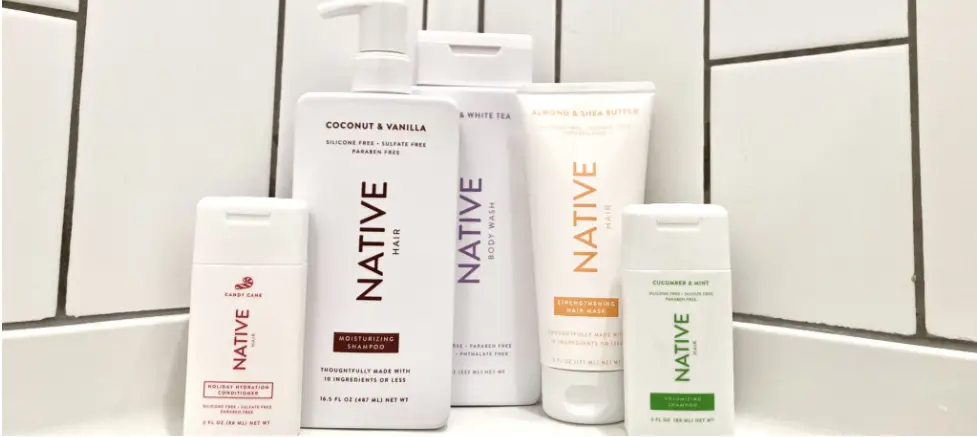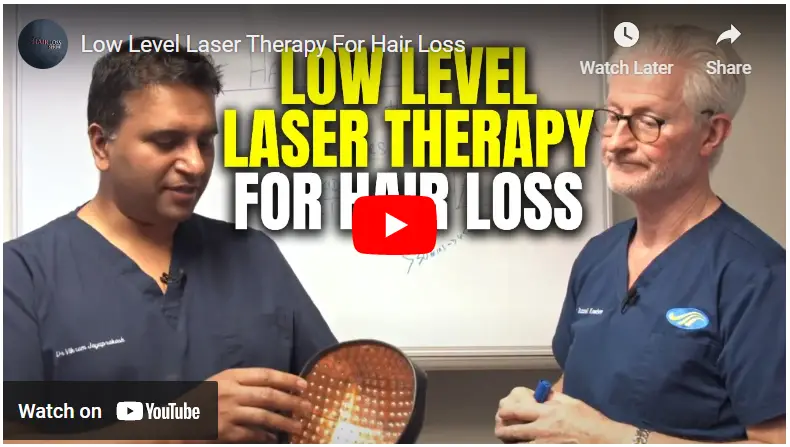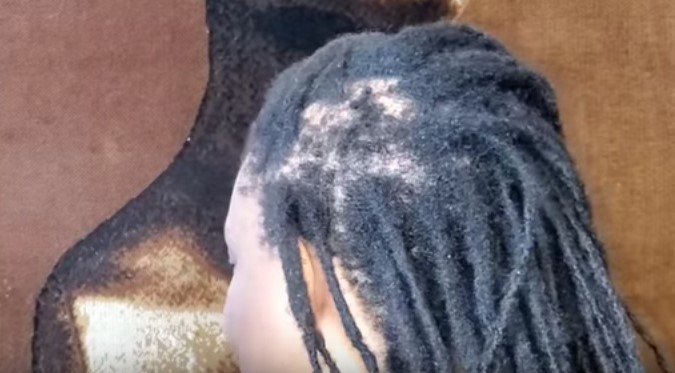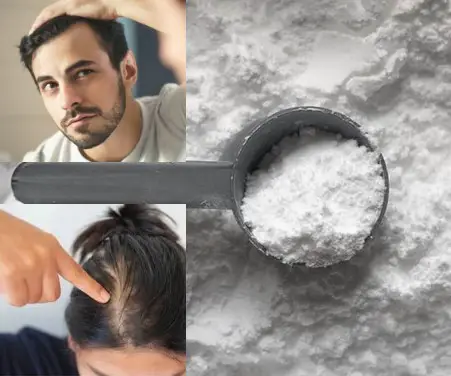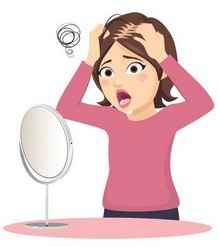Does Native shampoo cause hair loss? Uncover the truth about Native hair care products in our comprehensive review. Explore the ingredients, customer experiences, and alternatives. Don’t let hair loss concerns hold you back – get informed and make the right choice for your hair health today!
In the world of hair care, the products we choose can have a significant impact on the health and vitality of our hair. One such product that has gained popularity in recent years is Native Shampoo. This brand prides itself on using natural ingredients and being sulfate-free, making it a go-to choice for many individuals seeking healthier hair care options. But, a question that has been circulating in various online platforms is, does Native Shampoo cause hair loss?
In this article, we will delve into this topic, exploring the potential connection between Native Shampoo and hair loss. We will analyze the ingredients used in Native Shampoo, discuss user reviews, and compare it with other brands. We will also address common concerns and questions such as “Is Native shampoo safe?” and “What are the common causes of hair loss?”
To provide a comprehensive view, we will also discuss the role of hair care products in hair loss and explore alternative shampoos for different hair types. So, whether you’re a long-time user of Native Shampoo or someone considering switching to this brand, this article is for you.
Before we dive in, let’s take a moment to understand hair loss and its common causes. For a more in-depth look at this topic, feel free to check out our article on the Cause of Balding.
Stay tuned as we unravel the truth behind the question – does Native Shampoo cause hair loss?
Key Takeaways:
- Native Shampoo and Hair Health: Native shampoo is generally not associated with hair loss. It’s made with natural ingredients that are gentle on the scalp and beneficial for hair health.
- Individual Experiences May Vary: Some users have reported hair thinning and dryness after using Native shampoo. However, these experiences are not the norm and may be influenced by other factors.
- Potential Harmful Ingredients: While Native shampoo is free from many harmful chemicals, it’s always important to check the ingredient list. Some ingredients, even in ‘natural’ products, can cause irritation or adverse reactions.
- Consult a Professional: If you’re experiencing hair loss and are unsure of the cause, it’s always best to consult with a healthcare professional or a dermatologist.
- Alternative Shampoos: If Native shampoo doesn’t work for you, there are many other brands on the market that cater to different hair types and concerns. It’s all about finding what works best for your hair.
Please note: This article is intended to provide information based on current research and user reviews. It is always recommended to consult with a healthcare professional or a dermatologist for personalized advice.
Related Post:
Does Native Shampoo Cause Hair Loss?
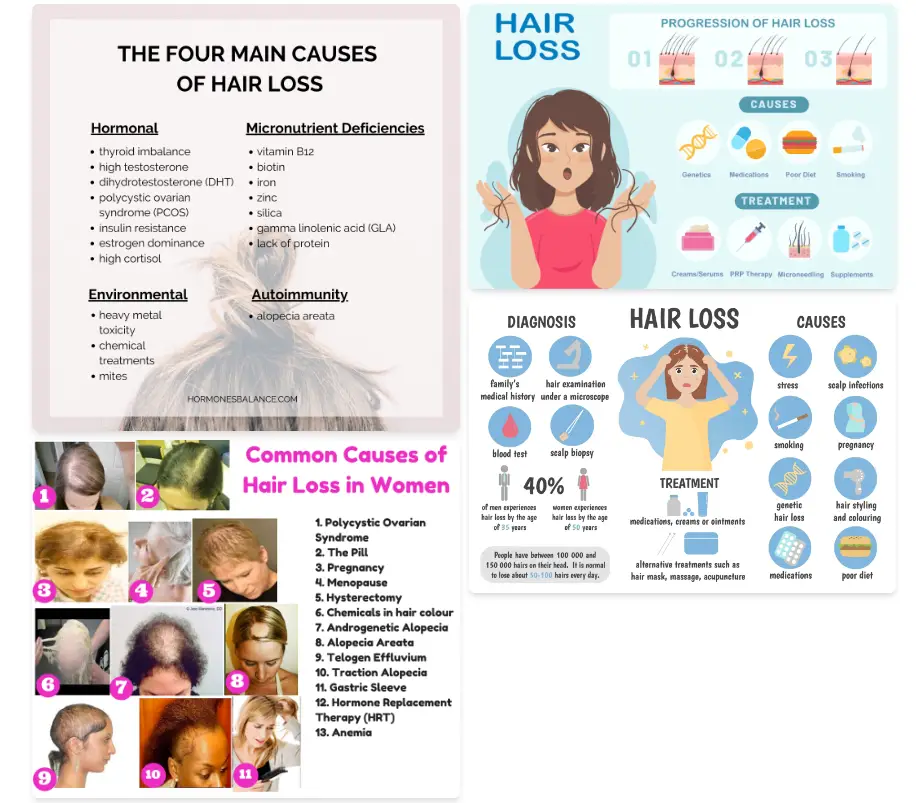
Based on various sources, Native shampoo does not typically cause hair loss. It’s formulated with natural ingredients like jojoba oil and aloe vera, which are known to be gentle on the scalp and beneficial for hair health. However, individual experiences may vary, and some users have reported hair thinning and dryness.
Understanding Hair Loss
Hair loss is a common concern for many individuals, and it can occur due to a variety of reasons. It’s important to understand that hair loss is a natural part of the hair growth cycle. However, when the rate of shedding exceeds the rate of growth, or when new hair is thinner than the hair shed, hair loss occurs.
One of the most common causes of hair loss is genetics. If you have a family history of baldness, you are more likely to experience hair loss. This is often referred to as androgenetic alopecia or pattern baldness, which affects both men and women.
Another common cause is hormonal changes, especially in women. Pregnancy, childbirth, menopause, and thyroid problems can all lead to hair loss. Certain medical conditions, such as alopecia areata, scalp infections, and trichotillomania (hair-pulling disorder), can also result in hair loss.
Moreover, lifestyle factors can contribute to hair loss. These include stress, a lack of proper nutrition, weight loss, and smoking. Certain hairstyles and treatments that pull on the hair or use harsh chemicals can also cause hair loss, a condition known as traction alopecia.
Lastly, the products we use on our hair can significantly impact its health. This includes shampoos, conditioners, and other hair care products. Some ingredients in these products can potentially cause hair loss, leading to questions like “Does Native Shampoo cause hair loss?” and “What ingredient in shampoo causes hair loss?”.
In the next section, we will delve deeper into the connection between Native Shampoo and hair loss. But before we do, it’s worth noting that if you’re experiencing significant hair loss, it’s crucial to consult with a healthcare professional or a dermatologist. They can help determine the underlying cause and suggest appropriate treatments.
Stay tuned as we explore the ingredients in Native Shampoo and their potential impact on hair health.
Native Shampoo and Hair Loss: The Connection
When it comes to hair care products, the ingredients they contain play a crucial role in determining their effects on our hair. Native Shampoo is known for its use of natural ingredients and being sulfate-free. But does that mean it’s completely safe and free from causing hair loss? Let’s delve into the details.
Native Shampoo prides itself on being paraben and sulfate-free. Parabens and sulfates are common ingredients in many shampoos, but they have been linked to various health concerns, including hair loss. Parabens are preservatives that prevent the growth of bacteria and mold, while sulfates are detergents that create the lather we associate with cleaning. However, sulfates can strip the hair of its natural oils, leading to dryness, brittleness, and potential hair loss.
While Native Shampoo avoids these controversial ingredients, it does contain others that some users have raised concerns about. For instance, some users have reported experiencing hair loss after using Native Shampoo, leading to questions like “Does Native Shampoo cause hair loss?” and “Is Native Shampoo safe?”.
To answer these questions, we need to look at user reviews and scientific evidence. User reviews on various platforms, including Reddit, have shown mixed responses. Some users swear by Native Shampoo and its benefits, while others report experiencing hair loss after using the product. However, it’s important to note that these are individual experiences and may not reflect the overall effect of the product.
From a scientific perspective, there is currently no concrete evidence linking Native Shampoo directly to hair loss. However, it’s worth noting that everyone’s hair is different, and what works for one person may not work for another. Some people may have allergic reactions to certain ingredients, which could potentially lead to hair loss. Therefore, it’s always recommended to do a patch test before using a new product.
For more information on the potential causes of hair loss due to hair care products, you can check out our detailed article on What Ingredient in Shampoo Causes Hair Loss.
Native Shampoo Reviews
When it comes to understanding the potential effects of a product, user reviews can provide valuable insights. For Native Shampoo, reviews are mixed, with some users praising the product and others reporting less than satisfactory experiences.
On various online platforms, including Reddit, some users have reported a positive experience with Native Shampoo. They appreciate the brand’s commitment to using natural ingredients and being sulfate and paraben-free. Users have noted that their hair feels cleaner, softer, and more manageable after using the product. Some have even mentioned that it helped with their dandruff issues, addressing the question, “Is Native Shampoo good for dandruff?”.
However, not all reviews are glowing. Some users have reported experiencing hair loss after using Native Shampoo. These reports have led to questions like “Does Native Shampoo cause hair loss?” and “Is Native Shampoo safe?”. It’s important to note that these are individual experiences and may not reflect the overall effect of the product.
In addition to these reviews, there have been discussions about a “Native Shampoo lawsuit“. While there has been some talk about this online, it’s crucial to verify such information from reliable sources.
However, while some users have had positive experiences with Native Shampoo, others have reported hair loss. This highlights the importance of individual differences in response to hair care products. If you’re considering trying Native Shampoo, it may be worth doing a patch test first or consulting with a dermatologist.
For more information on how different shampoos can affect hair health, check out our article on Does Raw Sugar Shampoo Cause Hair Loss.
Native Shampoo: Pros and Cons
Like any product, Native Shampoo has its pros and cons. Understanding these can help you make an informed decision about whether this product is right for you.
Pros:
- Natural Ingredients: Native Shampoo prides itself on using natural ingredients, which can be gentler on the hair and scalp compared to synthetic ones.
- Sulfate and Paraben-Free: The absence of sulfates and parabens can be beneficial for those with sensitive scalps or those who prefer to avoid these ingredients.
- Variety of Scents: The shampoo comes in a variety of scents, offering options for different preferences.
Cons:
- Potential for Hair Loss: Some users have reported hair loss after using Native Shampoo. However, it’s important to note that these are individual experiences and may not reflect the overall effect of the product.
- Price: Native Shampoo is pricier than some other brands, which may be a consideration for some consumers.
| Pros | Cons |
|---|---|
| Natural Ingredients | Potential for Hair Loss |
| Sulfate and Paraben-Free | Price |
| Variety of Scents | – |
Native Shampoo Formulations
Native Shampoo has gained popularity for its cruelty-free line of shampoos and conditioners, free from parabens, sulfates, dyes, and silicones. Available in four distinct formulations, each designed to cater to different hair needs:
- Strengthening Almond and Shea Butter
- Moisturizing Coconut and Vanilla
- Daily Clean Citrus and Herbal Musk
- Volumizing Cucumber and Mint
These shampoos are suitable for all hair types, but they are particularly recommended for those with thin hair. For instance, the Volumizing Cucumber and Mint is suggested for people with oily and thin hair. All formulas are infused with salts and oils, which can cause hair to become oily, especially if you reside in an area of hard water.
The Moisturizing Coconut and Vanilla and Strengthening Almond and Shea Butter are best for curly and thick hair. The Strengthening Almond and Shea Butter can even be used as a hair mask, providing a deep conditioning experience that nourishes your hair.
Customer Reviews and Concerns
Native’s shampoo range is affordable for a decent vegan shampoo, much like the Dove shampoo range. Native is pretty responsible for being a large-scale producer.
Customers’ reviews on social media mention that Native shampoos make their hair feel softer and can help counteract the effects of hard water damage. They also appreciate the small and generally non-toxic ingredient list.
However, there’s one thing that people might be concerned about: the scent that is added to the native brand. Under U.S. law, companies are permitted to incorporate the 4,000 chemicals they use in their perfumes and are not required to reveal to customers what these chemicals are. This can be a problem for those allergic to certain chemicals, as it is impossible to determine if the fragrance contains synthetic chemicals that don’t just trigger a reaction but are also considered disruptors of the endocrine system or carcinogens.
Native’s Stance on Fragrance
According to the company’s website, Native only uses essential oils, safe synthetic oils, and natural extracts to make its selection of scents. The company claims that they are all in compliance with the International Fragrance Association’s (IFRA) guidelines. However, the IFRA declares the safety of certain oils made from synthetics, there aren’t any limitations on the use of phthalates, which have been implicated in causing obesity, asthma, and fertility issues, as well as synthetic musks, which can be hormone disruptors.
Potential Harmful Ingredients in Shampoos
While Native Shampoo has its advantages, it’s essential to consider the potential drawbacks. If you’re experiencing hair loss and are unsure of the cause, it’s always best to consult with a healthcare professional or a dermatologist.
Undisclosed Ingredients
As previously mentioned, Native doesn’t disclose the specific ingredients that make up its scents. However, it’s estimated that most popular shampoo brands could include up to 30 chemical ingredients in addition to the smell itself.
Harmful Ingredients
The ingredients of Native shampoo and conditioner set could be harmful, including:
- Surfactants: These are cleansing and conditioning agents.
- Sulfates: These are potent cleansing agents. They contain sodium lauryl Sulfate, which has been proven to cause irritation to hair follicles. If a hair follicle becomes damaged, it causes hair loss and causes a type of loss of hair.
- Formaldehyde: This can be found in various household products that kill bacteria to extend the shelf-life of products. But, this substance is classified as a group 1 cancer-causing agent for humans by the International Agency for Cancer Research. This means that formaldehyde can be recognized as a cause of cancer for a few individuals and can also cause irritation to mucus membranes and the lungs. Additionally, it can create allergic dermatitis in those who are allergic, which could cause scalp irritation and hair loss.
Even if the product says it’s free of formaldehyde or Sulfate in the product’s labeling, it’s recommended to review the list of ingredients. Sometimes, formulations are altered, but the labels remain. Other shampoo chemicals that are best avoided are formalin Methylene glycol and DMDM Hydantoin, which have been connected to hair loss and breakage.
| Ingredients | Potential Harm |
|---|---|
| Surfactants | Hair loss through regular use |
| Sulfates (specifically sodium lauryl Sulfate) | Irritation to hair follicles, hair loss |
| Formaldehyde | Cancer, irritation to mucus membranes and the lungs, allergic dermatitis, scalp irritation, hair loss |
| Formalin Methylene glycol and DMDM Hydantoin | Hair loss and breakage |
While Native Shampoo offers a range of benefits, it’s essential to be aware of potential concerns. Always read the ingredient list and consult with a healthcare professional if you’re experiencing hair loss or other adverse reactions.
Stay tuned as we explore alternative shampoos for those experiencing hair loss in the next section.
Sulfate-Free Shampoos and Hair Loss
In the world of hair care, the term “sulfate-free” has become a buzzword. But what does it mean, and how does it relate to hair loss? Let’s explore.
Sulfates are detergents used in many shampoos to create a lathering effect and remove dirt and oil from the hair. However, they can also strip the hair of its natural oils, leading to dryness, brittleness, and potentially, hair loss. This has led many people to switch to sulfate-free shampoos, like Native Shampoo.
Sulfate-free shampoos are gentler on the hair and scalp, preserving the hair’s natural oils and maintaining its moisture balance. This can be particularly beneficial for those with dry, brittle, or chemically treated hair. However, the question arises, “Are sulfate-free shampoos causing hair loss?”.
The answer is not straightforward. While sulfates can contribute to hair damage and potential hair loss, simply being sulfate-free does not guarantee that a shampoo is harmless. Other ingredients in the shampoo, such as certain preservatives or fragrances, could potentially cause scalp irritation or allergic reactions, which could lead to hair loss.
Moreover, individual differences play a significant role. What works for one person may not work for another. Some people may find that their hair responds well to sulfate-free shampoos, while others may not notice a difference or may even experience adverse effects.
If you’re considering switching to a sulfate-free shampoo, it’s important to do your research and perhaps consult with a dermatologist. And remember, hair loss can be caused by a variety of factors, not just the type of shampoo you use. If you’re experiencing significant hair loss, it’s crucial to seek professional advice.
For more information on the potential causes of hair loss, check out our detailed article on What Ingredient in Shampoo Causes Hair Loss.
In the next section, we’ll discuss the role of DHT in hair loss and how certain shampoos, including our recommended More Hair Organic Shampoo and Kiierr DHT Blocking Shampoo for Hair Growth, can help combat this. Stay tuned!
Alternative Shampoo Brands for Different Hair Types
Choosing the right shampoo for your hair type can make a significant difference in the health and appearance of your hair. But with so many brands and types of shampoos on the market, how do you choose? Let’s explore some alternative shampoo brands for different hair types.
For Greasy Hair
If you have greasy hair, you need a shampoo that can effectively remove excess oil without stripping your hair of its natural moisture. Look for shampoos with ingredients like tea tree oil or citrus extracts, which can help balance oil production and leave your hair feeling fresh and clean.
For Dry Hair
For dry hair, moisturizing shampoos are the way to go. These shampoos contain ingredients like shea butter, argan oil, or coconut oil, which can help hydrate your hair and seal in moisture. Avoid shampoos with sulfates, as they can strip your hair of its natural oils and exacerbate dryness.
For Curly Hair
Curly hair requires a shampoo that can cleanse without causing frizz. Look for sulfate-free shampoos with hydrating ingredients to keep your curls soft and defined. Some people with curly hair have found success with Native Shampoo, which is sulfate-free and contains moisturizing ingredients.
For Hair Loss
If you’re experiencing hair loss, consider shampoos designed to combat this issue. Our top recommendations are More Hair Organic Shampoo and Kiierr DHT Blocking Shampoo for Hair Growth. These shampoos are formulated with ingredients that can help promote hair growth and prevent hair loss.
More Hair Organic Shampoo is made with organic ingredients and is free from harsh chemicals. It nourishes the scalp and hair follicles, promoting healthier hair growth.
Kiierr DHT Blocking Shampoo for Hair Growth is specifically designed to block DHT, a hormone that can cause hair loss. It also nourishes the scalp and hair follicles, promoting healthier and thicker hair growth.
Remember, everyone’s hair is unique, and what works for one person may not work for another. It’s important to understand your hair type and needs when choosing a shampoo. If you’re unsure, consider consulting with a hair care professional or dermatologist.
For more information on how different shampoos can affect hair health, check out our article on does shea moisture cause hair loss.
In the next section, we’ll delve deeper into the causes of hair loss and how you can prevent it. Stay tuned!
Frequently Asked Questions
In this section, we’ll address some of the most common questions related to hair loss and shampoo use.
1. What are the common causes of hair loss?
Hair loss can be caused by a variety of factors, including genetics, hormonal changes, stress, poor nutrition, certain medical conditions, and the use of certain hair products or treatments. For a more detailed explanation, check out our article on the Cause of Balding.
2. What are the ingredients in Native Shampoo?
Native Shampoo is known for its natural ingredients, which include coconut oil, shea butter, and aloe vera. However, the exact ingredients may vary depending on the specific product and scent.
3. Does Native Shampoo cause hair loss?
There have been some reports of hair loss associated with the use of Native Shampoo. However, it’s important to note that hair loss can be caused by a variety of factors, and it’s not clear whether the shampoo is the direct cause. If you’re experiencing hair loss, it’s best to consult with a healthcare professional or a dermatologist.
4. What are some alternative shampoos for people experiencing hair loss?
For those experiencing hair loss, we recommend More Hair Organic Shampoo and Kiierr DHT Blocking Shampoo for Hair Growth. These shampoos are formulated with ingredients that can help promote hair growth and prevent hair loss. You can find more information about these products on our website.
5. Does Native Shampoo cause dandruff?
Some users have reported experiencing dandruff after using Native Shampoo. However, dandruff can be caused by a variety of factors, including dry skin, sensitivity to hair products, and certain skin conditions. If you’re experiencing persistent dandruff, it’s best to consult with a healthcare professional or a dermatologist.
Remember, everyone’s hair is unique, and what works for one person may not work for another. It’s important to understand your hair type and needs when choosing a shampoo. If you’re unsure, consider consulting with a hair care professional or dermatologist.
For more information on how different shampoos can affect hair health, check out our article on Does Dove Shampoo Cause Hair Loss.
Conclusion
In conclusion, hair loss can be a complex issue with many potential causes, including the use of certain hair products. While some users have reported hair loss associated with the use of Native Shampoo, it’s important to remember that correlation does not necessarily imply causation.
If you’re experiencing hair loss, it’s crucial to consult with a healthcare professional or a dermatologist to understand the underlying causes and find the most effective treatment. It’s also worth considering the switch to hair products specifically designed to combat hair loss, such as the More Hair Organic Shampoo and Kiierr DHT Blocking Shampoo for Hair Growth that we’ve recommended in this article.
Remember, everyone’s hair is unique, and what works for one person may not work for another. It’s important to understand your hair type and needs when choosing a shampoo. If you’re unsure, consider consulting with a hair care professional or dermatologist.
For more information on hair loss and how to prevent it, check out our other articles on Signs of Hard Water on Hair and Does Hair Gel Cause Hair Loss.
We hope this article has been informative and helpful. Remember, the key to healthy hair is a combination of good nutrition, proper hair care, and the right hair products. So, make the switch today and give your hair the care it deserves!
Ready to make a change? Check out our top recommended hair loss shampoos here and here.
- AI Powered Bald Filter Online 2024: See Yourself with No Hair! - January 19, 2024
- Harklinikken Bad Reviews 2024: Analyzing Negative Feedbacks - January 18, 2024
- How to Get the Alex Eubank Hair | Step-By-Step Tutorial 2024 - January 18, 2024

